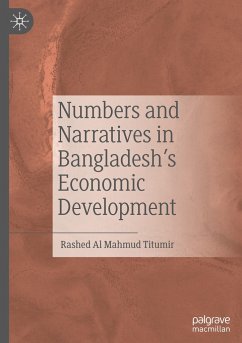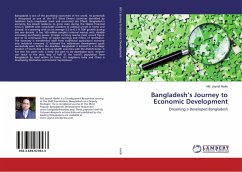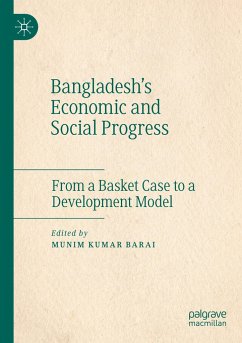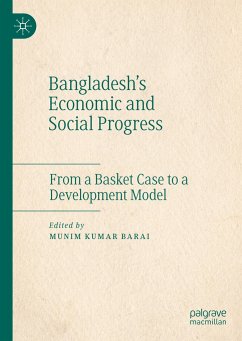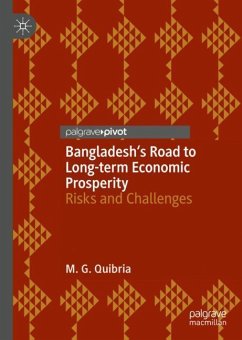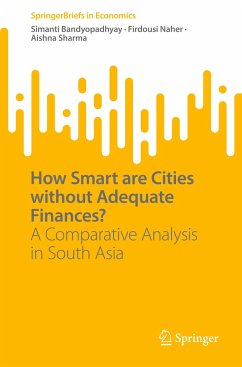
Numbers and Narratives in Bangladesh's Economic Development
Versandkostenfrei!
Versandfertig in 6-10 Tagen
91,99 €
inkl. MwSt.
Weitere Ausgaben:

PAYBACK Punkte
46 °P sammeln!
This book focuses on socio-economic developments of Bangladesh by challenging the dominant international narrative of the case being termed as "development surprise", "development paradox" or "development conundrum," given the absence of good governance. In doing so, the book examines the political economic dynamics and offers valuable insights into the current state of the Bangladeshi economy in light of stability, transformability and sustainability.Pointing to the 'high' rate of growth in gross domestic product (GDP) in Bangladesh, there is wide belief that economic growth can be obtained e...
This book focuses on socio-economic developments of Bangladesh by challenging the dominant international narrative of the case being termed as "development surprise", "development paradox" or "development conundrum," given the absence of good governance. In doing so, the book examines the political economic dynamics and offers valuable insights into the current state of the Bangladeshi economy in light of stability, transformability and sustainability.
Pointing to the 'high' rate of growth in gross domestic product (GDP) in Bangladesh, there is wide belief that economic growth can be obtained even without functioning institutions, and is more important than an inclusive political system. Advocates go on to argue that authoritarianism may be condoned as long as a steady course of development is perused. However, the inadequacy of comparative analysis in to the state of the economy of Bangladesh vis-à-vis other relevant economies makes such claims myopic and parochial.
This book thus investigates the numbers and narratives to ascertain the validity of such assertions and lamentations by looking at the necessary and sufficient conditions of development. The necessary conditions imply an incisive inquiry into the factors of economic growth- land, labour, capital and technology while sufficient conditions warrant a penetrating incisive inquiry into the factors of economic growth- land, labour, capital and technology. As such, the book explores development by drawing variables of politics and economics to find out a causal relationship, and interjects these variables have on themes such as growth, agriculture, manufacturing industry, financial sector, health, education, poverty and inequality.
Pointing to the 'high' rate of growth in gross domestic product (GDP) in Bangladesh, there is wide belief that economic growth can be obtained even without functioning institutions, and is more important than an inclusive political system. Advocates go on to argue that authoritarianism may be condoned as long as a steady course of development is perused. However, the inadequacy of comparative analysis in to the state of the economy of Bangladesh vis-à-vis other relevant economies makes such claims myopic and parochial.
This book thus investigates the numbers and narratives to ascertain the validity of such assertions and lamentations by looking at the necessary and sufficient conditions of development. The necessary conditions imply an incisive inquiry into the factors of economic growth- land, labour, capital and technology while sufficient conditions warrant a penetrating incisive inquiry into the factors of economic growth- land, labour, capital and technology. As such, the book explores development by drawing variables of politics and economics to find out a causal relationship, and interjects these variables have on themes such as growth, agriculture, manufacturing industry, financial sector, health, education, poverty and inequality.





